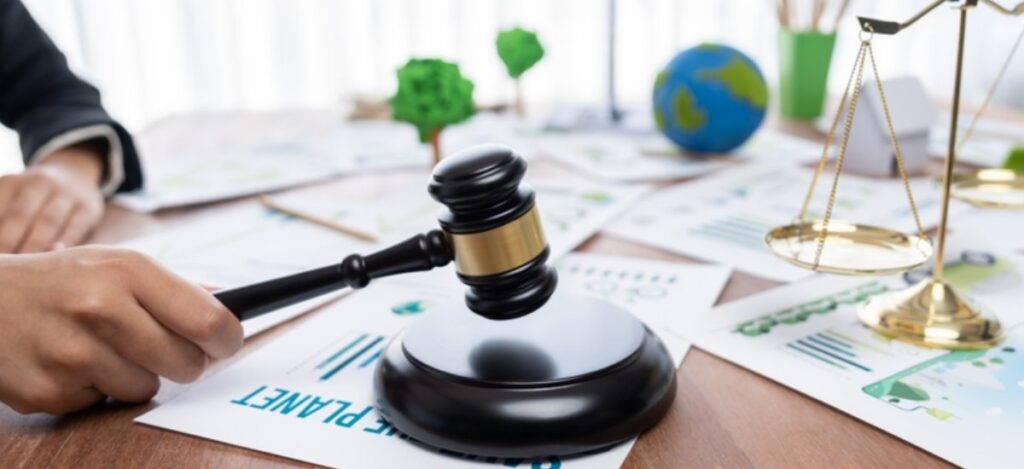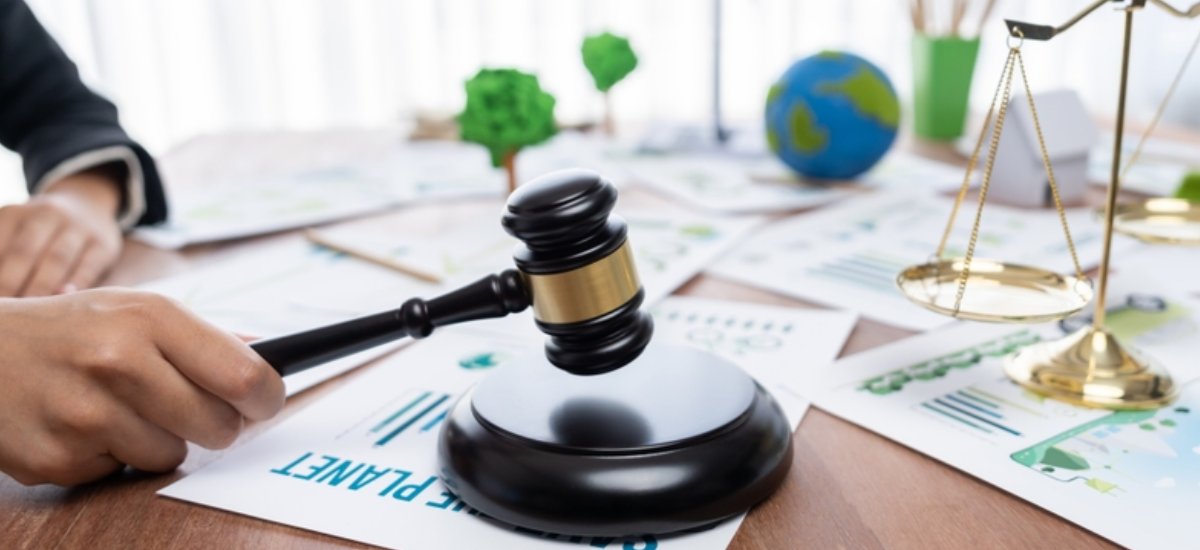In the Dominican Republic, various environmental regulations aim to protect the natural environment and ensure sustainable development.
Protecting and caring for the environment are crucial aspects for preserving natural resources and conserving ecosystems.
If you own a business in the Dominican Republic, it is essential to understand and comply with environmental policies in the country.

Laws Protecting the Environment in the Dominican Republic
Learn about the main laws and regulations concerning the protection of the natural environment in Dominican society:
- General Law on Environment and Natural Resources (Law No. 64-00): Establishes general provisions for the protection, conservation, and sustainable use of natural resources and the environment.
- Law on Protected Areas (Law No. 202-04): This law aims to establish the legal framework for the conservation, administration, and management of protected areas in the Dominican territory.
- Solid Waste Law (Law No. 225-07): Regulates the comprehensive management of solid waste in the country. It establishes the responsibilities of waste generators, transporters, and managers and promotes the reduction, reuse, recycling, and proper final disposal of waste.
- Noise Pollution Law (Law No. 64-00): This law seeks to regulate and control noise pollution caused by excessive noise sources.
- Renewable Energy Law (Law No. 57-07): Promotes the use of renewable energy sources in the Dominican Republic.
Environmental Standards in the Dominican Republic
- Environmental Standard on Groundwater Quality and Subsurface Discharges: Regulates the quality of groundwater and subsurface discharges to prevent contamination of these vital resources.
- Standard for the Integral Management of Infectious Waste: Controls the handling of infectious waste from generation to final disposal, aiming to protect public health and the environment.
- Environmental Standard on Air Quality and Emission Control: Establishes the maximum permissible concentrations of air pollutants, seeking to minimize atmospheric pollution and its negative effects.
- Standard for Noise Protection: Regulates the maximum permissible noise levels in different zones to protect the health and well-being of the population.
- Standard for the Environmental Management of Non-Hazardous Solid Waste: Oriented towards the proper management of non-hazardous solid waste to reduce its environmental impact and promote sustainability.
- Standard for Radioactive Waste Management: Defines procedures for the safe handling of radioactive waste, protecting people and the environment from associated risks.
Requirements and Processes to Comply with Environmental Standards and Regulations in the Dominican Republic
To comply with environmental standards and regulations in the Dominican Republic, it is necessary to follow certain requirements and processes:
- Environmental Impact Assessment (EIA): For large-scale projects or those that may have a significant environmental impact, an Environmental Impact Assessment is required.
- Obtaining Permits and Authorizations: It is important to obtain the necessary permits and authorizations before conducting activities that may impact the environment.
- Compliance with Specific Regulations: There are specific regulations for different sectors, such as industry, construction, tourism, agriculture, among others.
- Maintaining Records and Reports: It is important to keep adequate records of environmental-related activities, including waste management, emissions, energy, and water consumption, among others.
- Training and Awareness: It is essential to have trained and aware personnel regarding environmental regulations and practices.
What Are the Requirements and Processes to Comply with Safety and Hygiene Standards and Regulations in the Dominican Republic?
To comply with safety and hygiene standards and regulations in the Dominican Republic, it is important to follow the established requirements and processes:
- Risk Identification: Conduct a workplace risk assessment to identify potential hazards and risks to workers’ safety and health.
- Implementation of Prevention Measures: Once risks are identified, it is necessary to implement appropriate prevention measures.
- Compliance with Regulations: It is important to comply with current safety and hygiene regulations and standards.
- Training and Education: Provide adequate safety and hygiene training and education to workers.
- Maintenance and Monitoring: Regularly maintain equipment and facilities to ensure proper operation and safety.
- Worker Participation and Consultation: Encourage active worker participation in identifying and preventing occupational risks.
What Is the Climate and Environment Like in the Dominican Republic?
The Dominican Republic has a tropical climate, characterized by high temperatures and a well-defined rainy season. Here are the main characteristics of the climate and environment in the country:
- Climate: The Dominican climate is mainly classified as tropical humid. There are two main seasons: the dry season, which runs from November to April, and the rainy season, from May to October.
- Biodiversity: The country is known for its rich biodiversity, with a variety of ecosystems including tropical forests, mangroves, wetlands, mountains, rivers, and coastlines.
What Social and Environmental Impact Could Investing in the Dominican Republic Have?
Investing in the Dominican Republic can have significant social and environmental impacts. Some of the potential impacts of an investment in the country include:
- Job Creation: Successful investments can create direct and indirect jobs in various sectors of the Dominican economy. This helps reduce the unemployment rate and provides job opportunities and improved incomes for the local population.
- Economic Development: Investments can boost the country’s economic growth by attracting capital, technology, and specialized knowledge. This can result in the development of new industries, increased productivity, economic diversification, and strengthened national and international competitiveness.
- Technology Transfer: Foreign investments often bring advanced technology and knowledge transfer, benefiting the Dominican Republic by enhancing innovation capacity, productivity, and the quality of products and services.
- Infrastructure and Services: Some investments may involve the construction of infrastructure such as roads, bridges, ports, or renewable energy. This improves the quality of life for the population and facilitates access to basic services such as transportation, energy, and communications.
- Environmental Impact: Any investment has the potential to generate environmental impacts, whether positive or negative. It is essential that investments are made sustainably and environmentally friendly, minimizing negative effects such as pollution, deforestation, or ecosystem degradation.
- Social Development: Responsible investment can contribute to social development by promoting corporate responsibility, creating corporate social responsibility programs, and participating in community projects. This may include initiatives in education, health, housing, potable water, and sanitation, among others.
What Are the Challenges to Sustainability in the Dominican Republic?
Some of the most significant challenges are:
- Climate Change: The Dominican Republic faces challenges from climate change, including rising temperatures, extreme weather events, and sea-level rise. This affects both natural ecosystems and human communities, especially those located in coastal areas.
- Waste Management: Adequate solid waste management remains a challenge in the country. There is a need to improve waste collection, separation, recycling, and final disposal, as well as to reduce waste generation and promote a circular economy.
- Natural Resource Protection: Preserving natural resources, such as forests, rivers, lakes, and mangroves, is essential for ensuring sustainability. Adequate management of these resources is required, including the protection of protected areas and the implementation of sustainable management practices.
- Renewable Energy: Despite the potential for renewable energy generation in the Dominican Republic, there is still significant dependence on non-renewable energy sources. The challenge lies in increasing the participation of clean energy in the energy matrix and reducing dependence on fossil fuels.
- Environmental Education and Awareness: The lack of environmental awareness and the need for environmental education are important challenges. It is essential to promote awareness of the importance of sustainability, encourage active population participation, and promote behavioral changes towards more sustainable practices.
- Sustainable Urban Development: Urban growth and city expansion pose challenges in terms of urban planning, efficient land use, sustainable transportation, and air quality. Adequate planning and policies that promote sustainable urban development are required.
What Are the Options for Protecting Biodiversity and the Environment in the Dominican Republic?
Some of the most notable options are:
- Creation and Management of Protected Areas: The Dominican Republic has a network of protected areas that encompass various ecosystems, such as national parks, scientific reserves, wildlife refuges, and natural monuments.
- Promotion of Species and Habitat Conservation: Specific measures should be implemented for the conservation of endangered species and fragile habitats.
- Promotion of Sustainable Agricultural Practices: Sustainable agriculture plays a crucial role in environmental protection.
- Promotion of Sustainable Tourism: Tourism is an important source of income for the Dominican Republic, and its sustainable development can contribute to environmental protection.
- Environmental Education and Awareness: Environmental education plays a fundamental role in protecting biodiversity and the environment.
- Strengthening Environmental Legislation: It is important to have strong environmental legislation that promotes the protection of biodiversity and the environment.
At Contadores Dominicanos, we provide comprehensive legal, corporate, and accounting advisory services for creating businesses and companies in the Dominican Republic. Our highly qualified professionals are ready to answer all your questions.







